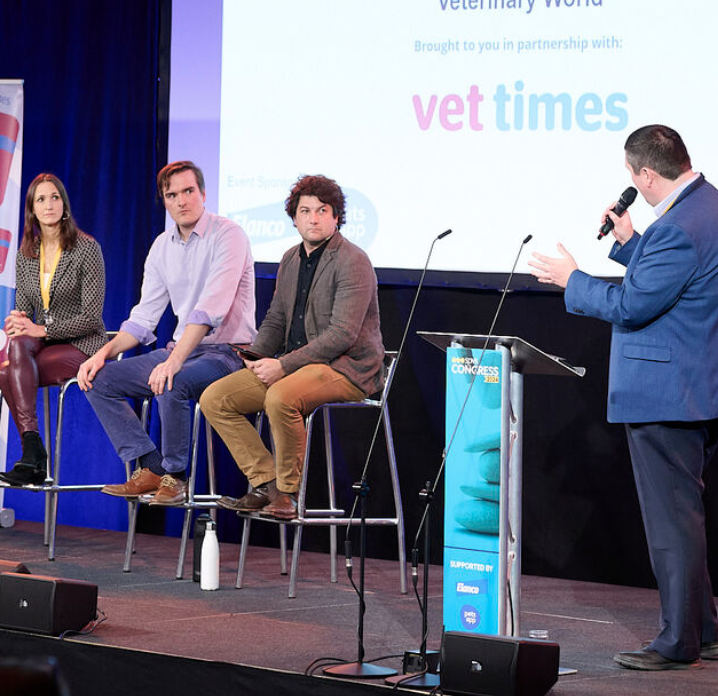Delegates from up and down the UK attended this year’s VetCPD conference and were treated to an unusually candid session from Dr. Richard…
Read moreAI in Veterinary: The Big 6 at SPVS Congress
Naomi Oikonomou·8 February 2024
Pack lead Dr. Thom Jenkins joined the Vet Times' Big 6 panel at SPVS Congress last month, alongside Liz Barton, Vet-CT; PJ Noble, SAVSNET, University of Liverpool; Sue Paterson, RCVS; Jack Peploe, Veterinary IT Services and Oli Viner, Eve Veterinary.

AI in Veterinary
AI is everywhere, and increasingly being utilised to aid various elements of veterinary medicine. These tools not only optimise workflow but also enhance the decision-making processes of veterinarians, leading to improved patient care and treatment outcomes. The big 6 panel worked through a long list of questions that have surfaced over the past year as AI has stormed into play across all industries, globally. With many voicing concerns over its regulations within the pet care community.
Veterinary professionals have been urged to be cautious, yet “open-minded” about how AI could enhance their work in practice.
The advice came as a panel of industry experts debated the technology’s implications for the sector during the third Vet Times Big 6 Live session.
Allowing delegates to play an active role in the discussion, held as part of the annual SPVS Congress in Birmingham, the AI panel debate created an open forum for those in need of more insights around how to safely deploy AI. Last year saw a sudden development of AI technology across all industries, globally, with many in the veterinary community feeling they still had a fair way to go, to catch up with their peers in human medicine.
Jack Peploe, founder of Veterinary IT Services, said:
"The veterinary profession has shown an ability to adapt to change. It’s our job and our duty, as much as possible, to show what can be done and for you guys to be as open-minded as possible.”
With VetCT's head of communications Liz Barton expressing that currently AI was a 'Wild West', open to anyone willing to 'go out there' and develop AI tools and potentially deploy them directly to pet owners.
Regulating staff
PetsApp CEO and cofounder, Thom Jenkins warned that future models should seek to avoid discouraging veterinary staff from engaging with the technology.
With RCVS president Sue Paterson also agreeing that the college’s role was to provide guidance, rather than to regulate individual devices, but that they would be monitoring use and feedback from the community.
She said: “As a clinician, I see this as a huge opportunity for us to improve animal health and welfare. I think it’s really, really exciting. AI gives us huge potential, under the right circumstances, to improve the way in which we provide care.”
Final say
Dr Jenkins said there was no reason for the veterinary community to be left behind and that evidence had already shown that vets who used AI tools such as PetsApp CoPilot performed better than both those who did not and AI platforms alone.
Latest from the blog
When it comes to veterinary client communication, ease, reliability, and efficiency make all the difference. That’s why PetsApp is proud to…
Read moreAt PetsApp, our pack are always working to make communication between veterinary clinics and pet owners simpler, clearer, and more effective…
Read more